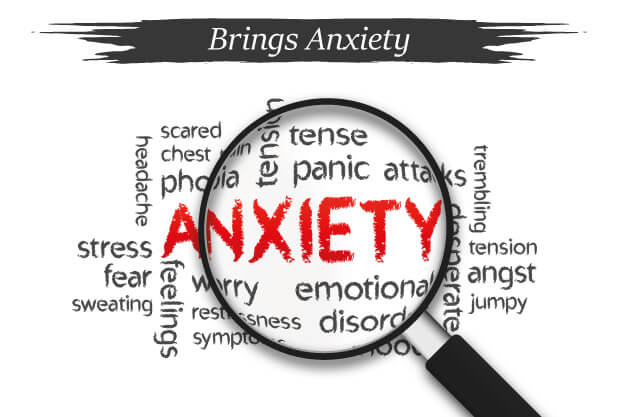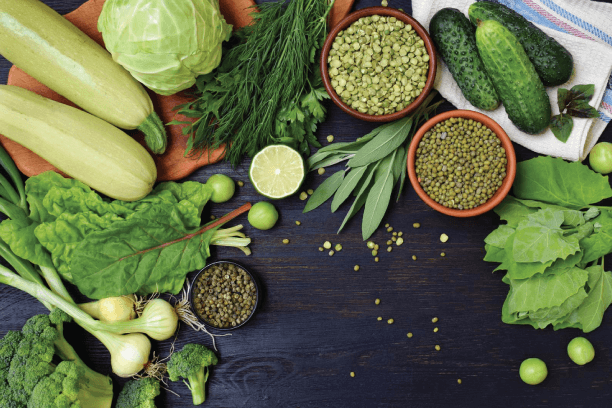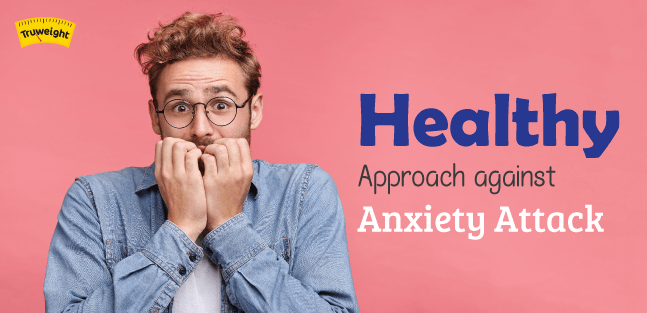Disease, Food & Nutrition, Health
7 Foods You Should Avoid When You Have Anxiety Attack & Prevent Weight Gain
Getting anxious at times is quite a common phenomenon during stressful times. But do you face this problem every now and then?
If yes, you should analyse and evaluate what makes you undergo anxiety. Perhaps a visit to your health care provider or a walk-in to a counsellor might offer some help in dealing with it.
Table of Contents
- Foods that can cause anxiety
- Common signs of this disorder
- The types of anxiety disorder
- Nutrition for anxiety and depression
- The foods to include in your diet to help with anxiety and depression
- Amazing Facts
Not to forget the type of response you elicit is also influenced by food. So, it is essential you opt for healthy choices that could help you stay away from anxiety and depression.
Experts also recommend certain foods that are friendly on the stomach and could save you from those weird feelings that keep constantly happening inside your stomach when you get anxious.
Here is a list of foods that can cause anxiety:
1. Caffeine:
A potent stimulant that can wake you up and feel energised upon consumption. But hey wait! Too much caffeine can actually cause anxiety as excessive consumption of caffeine can lead to sleep apnea or difficulty in falling asleep.
2. Refined sugars:
Almost all the additives we season our food with contain those harmful refined sugars. Even the sugar-free sucrose that you add to your diet to lose those extra pounds can be problematic.
3. Gluten:
Is a form of starch found in food grains such as wheat, rye and barley. Studies have shown that people with bowel disorders such as IBS and celiac disease are susceptible to depression and anxiety as consumption of gluten can cause irritability and of your bowel movement.
4. Processed foods:
Processed foods have a great number of preservatives that are added to increase the shelf life of the product. Packaged foods containing refined flours, flavour substitutes and sugars, attract the microflora like bacteria in your intestine.
5. Alcohol:
Hard drinks like alcohol only temporarily elevate your mood. In the long term, alcohol affects the thinking capability and physical functioning of your body.
Intake of alcohol for a prolonged period could have deleterious effects like anxiety, tachycardia or increased heart rate, and acute dehydration. It adversely affects the levels of serotonin levels in your brain which could lead to being more vulnerable to stress.
6. Dairy:
Dairy consumption can be a strict no for all the lactose intolerant people. It causes great discomfort in people who are lactose intolerant and gives rise to symptoms like bloating, flatulence, diarrhoea, constipation and belching of the stomach.
7. Soda:
contains bicarbonate Aerated and fizzy drinks like cola and soda can cause bloating in the stomach
Apart from these foods, you must curtail a few other foods to avoid anxiety disorder. These include fried foods, fruit juice rich in sugar content and high salt containing foods.
If you are someone who gets anxious and worked up easily, above listed are the foods to avoid in anxiety disorder.
Anxiety disorder is a psychological disorder that affects the overall development and personality of an individual. It prevails in all the age groups starting from a teenager to a full-grown man.
Anxiety disorder is a serious health issue which if not treated in the initial stages could be more detrimental towards the health of a person. Incessant worries about any matter, fear and nervousness are some of the common signs of anxiety.

Anxiety is often associated with feelings of fear, nervousness, apprehension and intense negative feelings. Such negative emotions often tend to make a person very anxious in native and have a negative outlook on life about everything.
One can feel anxious in many situations when he is a little stressed out and worried. Feeling anxiety when exams are nearing by, worried about the results or stressed out about a job prospect are some instances when a person experiences with anxiety. It is quite normal and humanly to have such feelings at certain crucial situations in life.
However, if a person constantly undergoes such feelings usually and lives through such emotions for more than 6 months, he could be suffering from an anxiety disorder. Chances are quite high that the person would eventually slip into depression.
A person undergoing anxiety disorder often feels confused and is in a dilemma. Persistent worries hover over his mind and blind his decision-making abilities.
Common signs of this disorder are:
- Restlessness
- Sweating
- Rapid Breathing
- Palpitation
- Increased heart rate
There are various kinds of anxiety-related disorder.
Following are some of the types of anxiety disorder.
1.Panic Disorder:
A person goes into a panic attack and goes through fright-flight reaction very frequently.
2. Post-Traumatic Stress Disorder:
A person undergoes this type of anxiety generally after unpleasant incidents or events such as car accidents, the death of a family member or a beloved one, sexual abuse etc.
The most common type of anxiety disorder experienced by any individual is generalised anxiety disorder.
3. Generalised Anxiety Disorder:
In generalised anxiety disorder, the person has constant feelings of fear, worry and anxiety running through his head. This is a common type of anxiety disorder which is prevalent across the population.
Persons suffering from generalised anxiety disorder are many a time not aware of the fact they are suffering from this disorder and are likely to ignore it. Most of the time, such cases go unnoticed as a majority of us are not informed of these mental conditions.
Continuous worrying and anxiety may lead to depression which is a severe mental condition. Anxiety and depression are co-related as the former condition may inherit a predisposition to depression.
Nutrition for anxiety and depression:
Nutrition plays a crucial role to ward off anxiety and depression. It is so important that we very often happen to neglect it. Nutrition for anxiety and depression should be enriching and packed with all the essential macro and micronutrients, minerals and vitamins
Studies have revealed that certain foods act as saviours in comparison to other sources of food when you are undergoing anxiety and depression.
A diet consisting of proteins, fibers and carbohydrates works a good way to beat anxiety and depression. Moreover, integrating healthy foods into your diet has other perks like it not just provides nourishment but also helps in avoiding weight gain.
There is a correlation between what you eat and the health implications associated with it.
Research has shown that a diet plan comprising of fruits, green vegetables full of antioxidants, omega-rich foods have a direct impact on your health and a decreased risk of depression. So it becomes very essential to include healthy foods in your diet so that you can stay healthy.
These are some of the foods to include in your diet to help with anxiety and depression
1. Magnesium
Foods loaded in magnesium increasingly help with anxiety and depression. It has been inferred from clinical studies that absence of magnesium in the diet has a predisposition to depression.
Common rich sources of magnesium include green leafy vegetables, banana, avocados, lentils, vegetables like asparagus, cabbage, green beans, Brussel sprouts etc.
2. Zinc
Zinc is a micronutrient found in meat, shellfish, legumes, seeds, nuts, eggs and whole grains. Deficiency of Zinc could lead to various mental disorders including depression and generalised anxiety disorder.
3. Antioxidants
 Antioxidants are substances that prevent the body against cell damage from free radicals. Leafy green vegetables contain a high amount of antioxidants in them and can reduce anxiety and depression.
Antioxidants are substances that prevent the body against cell damage from free radicals. Leafy green vegetables contain a high amount of antioxidants in them and can reduce anxiety and depression.
4. Omega-3-foods
Omega 3 are essential polyunsaturated fatty acids that decrease the amount of LDL (bad cholesterol) and thus help in avoiding weight gain. Some high sources of omega-3-fatty acids are tuna, salmon, sardines, herring, walnut, flaxseed oil, and canola oil.
5. Probiotics
Consumption of probiotics can help get rid of anxiety and depression. Probiotics are the good bacteria that helps in the digestion of foods and optimum functioning of the gut.
Amazing Facts:
- Physical activity of any form helps in lowering your anxiety and depression.
- Research conducted has shown that some potent traditional ancient herbs could act as potent medicines by blocking the neurotransmitters responsible for causing anxiety.
QUICK BYTES
Do Anxiety and depression lead to weight gain?
Yes, it does. Most of the people do binge eating when they are upset and get an anxiety attack
Can diet help in reducing anxiety?
It can help to a great extent provided you take some necessary measures such as exercise associated with a balanced diet.
If you are looking to shed weight, Possible can help you tread the path in the most natural and effective way.
Talk to our expert Possible Nutritionist for more information and guidance. The first consultation is on us. Click here to avail.

thanks for valuable information ,thaks a lot
Hi chan! We are glad that you liked the information provided in this article. Avoiding these 7 foods will help you from anxiety attack and weight gain. Keep following our blog to know more health information.